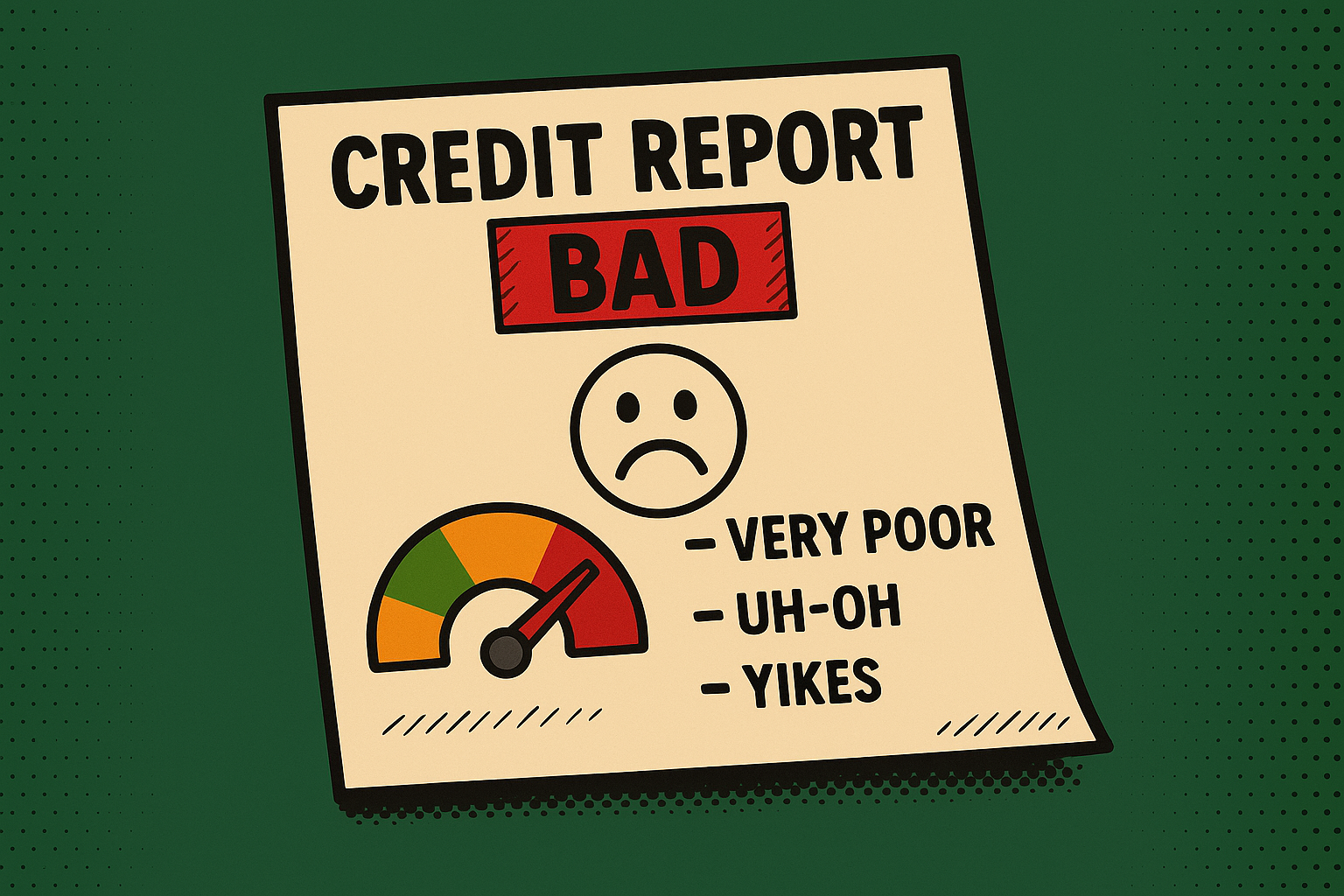Wrong Information on Your Credit Report? Here's Why It Happens — and How to Fight Back
- Our Practice Areas
- Credit Reporting Errors
Inaccurate Information

Understanding Inaccurate Information: A Common but Serious Threat
When you apply for credit, housing, or even a new job, your credit report often plays a decisive role in the decision-making process. Unfortunately, when that report contains inaccurate information, the consequences can be swift and severe. Incorrect details can lead to loan denials, higher interest rates, lost job opportunities, and significant emotional stress. At Consumer Attorneys, we specialize in helping individuals correct these harmful inaccuracies and fight for the justice they deserve.
Inaccurate information is one of the most prevalent types of credit report errors. It can happen for many reasons, from simple data entry mistakes to system failures between furnishers and credit reporting agencies (CRAs) like Experian, Equifax, and TransUnion. According to the Federal Trade Commission (FTC), approximately 25% of consumers have identified errors on their credit reports that could affect their scores, and 1 in 5 had errors serious enough to impact their ability to obtain credit. Explore all types of credit report errors protected under FCRA.
Common Types of Inaccurate Information
Errors on your credit report can come in many forms, including but not limited to:
- Incorrect Personal Information: Wrong name, address, Social Security number, or date of birth.
- Misreported Account Status: Paid accounts showing as delinquent, closed accounts reported as open, or debts incorrectly listed as in collections.
- Duplicate Accounts: The same account reported multiple times, artificially inflating your debt load.
- Inaccurate Payment Histories: Late payments incorrectly recorded, or on-time payments missing.
- Incorrect Balances or Credit Limits: Inflated debt amounts or understated credit limits, both of which can negatively affect your credit score.
Even seemingly minor inaccuracies can cause major problems. For example, a mistakenly reported late payment can lower a credit score by 100 points or more, according to FICO data.
Real-World Example: Misreported Late Payment
Error:
Sarah had a credit card she always paid on time. However, the creditor mistakenly reported her May 2024 payment as 60 days late to the credit bureaus.
Consequences:
- Her credit score dropped by over 90 points within a month.
- She was denied a mortgage pre-approval despite having an otherwise excellent credit history.
- The loan officer cited her "recent delinquency" as the sole reason for the rejection.
- Sarah also received higher auto insurance premiums because insurers based her rates partly on her now-lowered credit score.
How These Errors Occur
Inaccurate credit report information often results from a chain of failures between furnishers and credit bureaus. Furnishers - such as banks, lenders, and collection agencies - may submit outdated or incorrect data, and credit bureaus rely on automated systems that can easily misassign information, especially when consumers have similar names or Social Security numbers. If incorrect data belongs to someone else entirely, it may be a mixed file. Even when consumers dispute errors, automated dispute systems like e-OSCAR can oversimplify the issue and allow mistakes to persist. Despite the Fair Credit Reporting Act’s (FCRA) requirement that bureaus ensure accuracy, millions of Americans are still affected by these preventable errors each year.
In rare but serious cases, credit bureaus have mistakenly reported living consumers as deceased, causing devastating consequences for their financial lives. Learn how bureaus sometimes mark consumers as deceased in error.
- Furnisher Mistakes: Creditors, lenders, and collection agencies may supply incorrect data to CRAs.
- CRA Processing Errors: Credit bureaus may incorrectly input, match, or merge consumer data.
- Failure to Update Information: Accounts that have been resolved may not be updated promptly, leaving outdated negative marks on your report.
- Automation Flaws: Systems like e-OSCAR, used to process disputes, often rely on codes and automated handling that oversimplify consumer issues.
Despite the FCRA's requirement that CRAs maintain "reasonable procedures" to ensure maximum possible accuracy, high error rates persist - affecting millions of Americans each year.
Why Disputing Inaccuracies Yourself May Not Be Enough
Although the FCRA gives consumers the right to dispute inaccuracies on their own, the process is often stacked against them. Many consumers submit disputes only to receive templated, boilerplate responses or find their disputes dismissed without a real investigation.
Without experienced legal advocacy:
- Disputes may be improperly "verified" without a true reinvestigation.
- Critical errors may remain unresolved.
- You may miss the opportunity to seek compensation for financial harm, emotional distress, or credit denials.
At Consumer Attorneys, we not only ensure that your disputes are handled thoroughly but also pursue claims against CRAs and furnishers when they violate your rights under the FCRA.
Your Rights Under the Law
Under the Fair Credit Reporting Act, you have the right to:
- A credit report free of inaccuracies.
- Dispute any information you believe to be wrong.
- Have CRAs and furnishers conduct a reasonable investigation.
- Sue for damages if they fail to correct the inaccuracies or fail to investigate properly.
Damages can include out-of-pocket losses, emotional distress, damage to reputation, and punitive damages designed to deter future misconduct.
How Consumer Attorneys Can Help
When you work with Consumer Attorneys, you get a dedicated team focused on protecting your financial future. Our approach includes:
- In-Depth Credit Report Analysis: We scrutinize your credit reports for errors and inconsistencies.
- Strategic Dispute Management: We craft detailed, evidence-backed disputes that leave no room for automated denials.
- Litigation When Necessary: If CRAs or furnishers fail to meet their obligations, we aggressively pursue legal action on your behalf.
- Zero Out-of-Pocket Costs: We handle most cases on a contingency basis or under fee-shifting provisions, meaning you pay nothing unless we win.
Correcting inaccurate information is not just about fixing your credit score - it's about restoring your financial health, protecting your reputation, and holding powerful institutions accountable.
If you suspect inaccurate information is hurting your credit, don't leave your future to chance. Contact Consumer Attorneys today for a free consultation and find out how we can help you set the record straight.
Frequently Asked Questions
Credit reports can differ because not all creditors report to all three major credit bureaus (Experian, Equifax, and TransUnion). Some lenders may report to only one or two, and data may be updated at different times. Errors, mismatched personal information, or delays in reporting can also cause discrepancies between your credit reports.
To sue a credit bureau, you need proof that your credit report contained inaccurate information, evidence that you filed a proper dispute, and documentation showing the bureau failed to correct the error after investigating. You should also show how the mistake caused you financial harm, emotional distress, or other damages. Working with an experienced FCRA attorney can help strengthen your case.
You can check for mistakes by reviewing your credit reports from Experian, Equifax, and TransUnion. You are entitled to a free copy of each report once a year through AnnualCreditReport.com. Look for incorrect personal information, wrong account statuses, duplicate accounts, inaccurate balances, and payment history errors.
You generally don’t need to dispute old addresses or phone numbers unless they are completely inaccurate or linked to accounts that don’t belong to you. Removing outdated but correct information usually doesn’t impact your credit score. However, incorrect personal information could signal a mixed file or identity theft and should be corrected.
If your credit reports are not available online, you can request them by mail or phone directly from Experian, Equifax, and TransUnion. You may need to provide additional identification documents to verify your identity. You can also visit AnnualCreditReport.com to find alternative request methods.
Related Articles




R
ONGS™You pay nothing. The law makes them pay.













